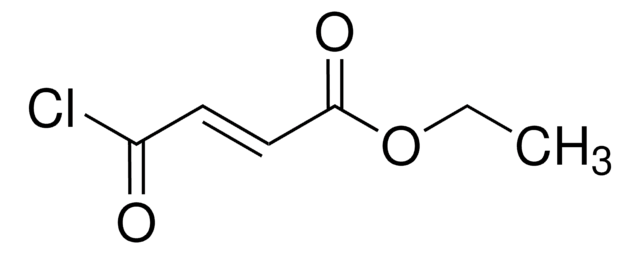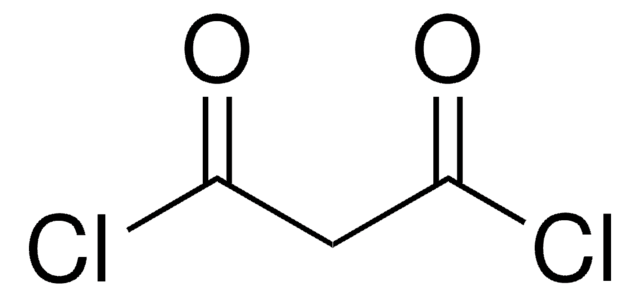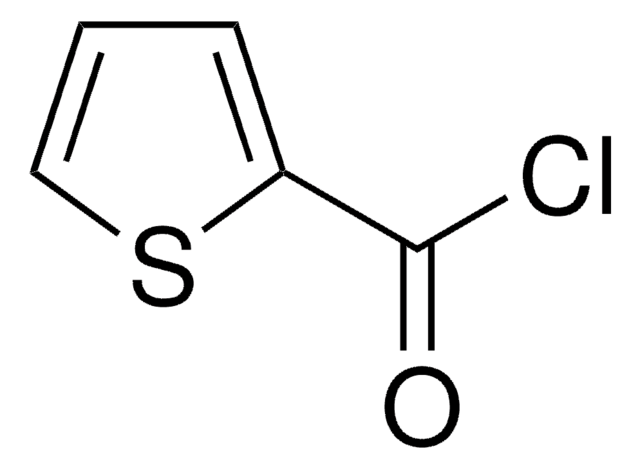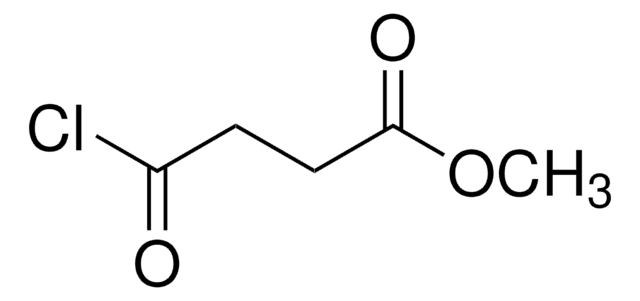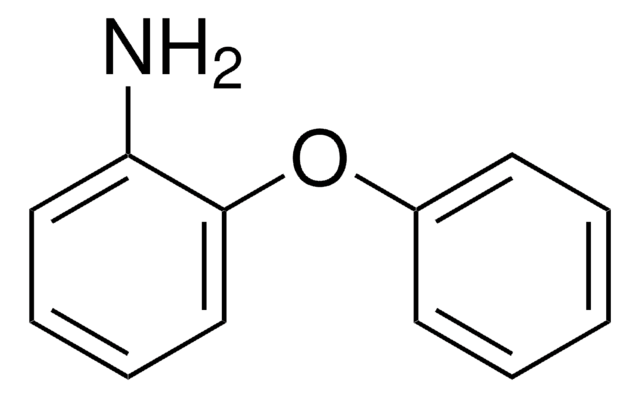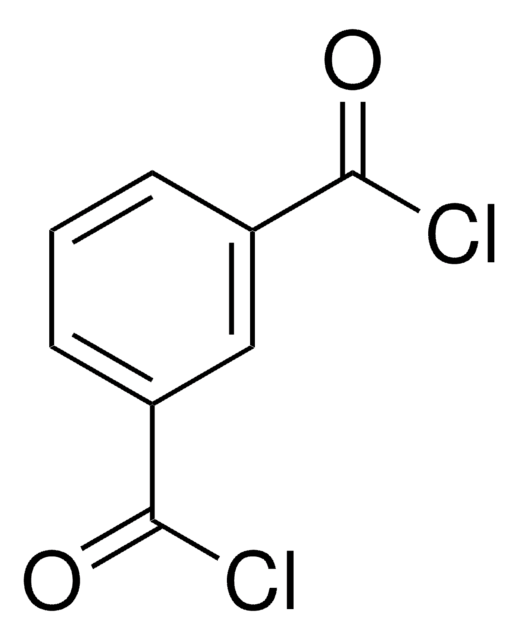151386
Fumaryl chloride
95%
Synonym(s):
(2E)-2-Butenedioyl dichloride, Fumaric acid chloride, Fumaric acid dichloride, Fumaric dichloride, Fumaroyl dichloride, Fumaryl dichloride
About This Item
Recommended Products
Quality Level
Assay
95%
form
liquid
refractive index
n20/D 1.499 (lit.)
bp
161-164 °C (lit.)
density
1.415 g/mL at 25 °C (lit.)
functional group
acyl chloride
storage temp.
2-8°C
SMILES string
ClC(=O)\C=C\C(Cl)=O
InChI
1S/C4H2Cl2O2/c5-3(7)1-2-4(6)8/h1-2H/b2-1+
InChI key
ZLYYJUJDFKGVKB-OWOJBTEDSA-N
Looking for similar products? Visit Product Comparison Guide
Related Categories
General description
Application
Signal Word
Danger
Hazard Statements
Precautionary Statements
Hazard Classifications
Acute Tox. 4 Dermal - Acute Tox. 4 Oral - Skin Corr. 1B
Storage Class Code
8A - Combustible corrosive hazardous materials
WGK
WGK 3
Flash Point(F)
170.6 °F - closed cup
Flash Point(C)
77 °C - closed cup
Personal Protective Equipment
Choose from one of the most recent versions:
Already Own This Product?
Find documentation for the products that you have recently purchased in the Document Library.
Customers Also Viewed
Our team of scientists has experience in all areas of research including Life Science, Material Science, Chemical Synthesis, Chromatography, Analytical and many others.
Contact Technical Service
